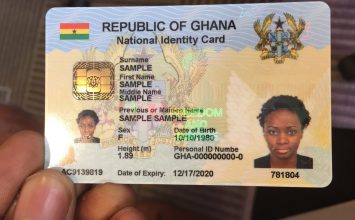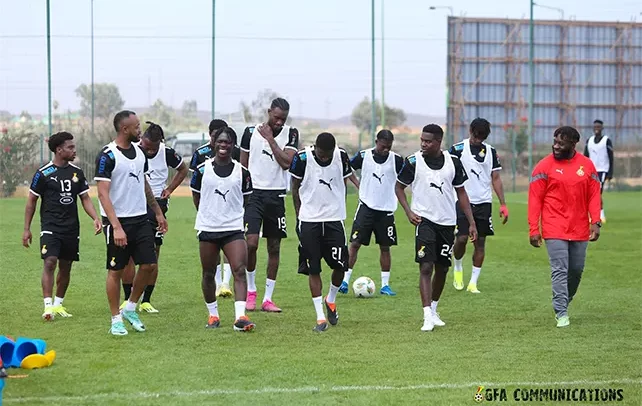
By Kofi Anokye Owusu-Darko (Dr)
According to the banks, there is a Bank of Ghana (BOG) directive that all third-party transactions in the banking hall must be supported by an identification (ID) of the party undertaking the transaction. This stems from the Anti-Money Laundering Act, 2020 (Act 1044), and the December 2022 BOG Guidelines for banks with respect to Anti-Money Laundering, Combating the Financing of Terrorism and the Proliferation of Weapons of Mass Destruction (AML/CFT&P guideline).
The Customer Due Diligence (CDD) procedure (identification and verification) under the AML/CFT&P guideline for example requires that Accountable Institutions, including banks, take reasonable steps to obtain sufficient identification data and to verify the identity of third parties either making deposits or withdrawal on behalf of their customers.
Our anti-money laundering laws, no doubt, have been sponsored by developed countries, and we must be mindful that our economies are different. Adopting their rules as they apply in their digitally transitioned economy and not adapting them to our peculiar situation not only puts an unnecessary burden on banks but negatively affects financial inclusion. Ghana is predominantly an informal and cash-based economy and the use of cheques is still an integral part of our payment system towards the transition to digital banking.
This article is about my very recent experience with the directive at a bank to produce an ID when I was making a cheque deposit of GHS4,000. The aim is to point out the need for banks to speak up when Anti Money Laundering (AML) directives are counterproductive to business when applied irrespective of the type of transaction.
CHEQUE DEPOSIT EXPERIENCE
I facilitated the sale of books between two friends of mine. The seller asked me to collect a cheque of GHS4,000 to deposit into her Stanbic bank account, on my way home.
The teller at the bank asked for my Ghana card for identification as a depositor but I did not have it on me. She told me without an ID, she could not accept the deposit. I asked why and she said it was a Bank of Ghana (BOG) directive.
I told the teller for anti-money laundering purposes I could understand if I was paying cash into the account, but the cheque had`a drawer and a payee so what role do I play in this transaction? I genuinely did not see the point. I made some small “noise” knowing banks do not like that in their banking halls and knowing she would have no answer. She rightfully called her immediate supervisor who came to see me in the banking hall.
I continued with the “noise” so the supervisor as expected moved me away from the banking hall to an office to see another person, whom I suspected to be the branch manager. They both told me there is a BOG directive on third-party transactions and that all such transactions must have IDs.
Being a Chartered Banker, I tried to be a bit “too known” by asking them the rationale behind it. None of them raised anti-money laundering as a possible reason. So, I brought it up. I told them that it makes sense for cash deposits, but even that should be above certain deposit limits since our economy is predominantly cash based. They were staring at me
For check deposits, what risk are they mitigating when there is a drawer and a payee in the transaction that can be traced? I asked if the directive for cheque deposits made sense and there was no answer, either. They insisted that it was a BOG directive and that without an ID they could not accept the deposit, so they returned the cheque to me. I walked away with my unsolicited “too known” lecture.
THE BOG AML/CFT&P GUIDELINE
Money Laundering (ML) is defined in the guideline as “the process where criminals attempt to conceal the illegal origin and/or illegitimate ownership of property and assets that are proceeds of their criminal activities. It is, thus, a derivative crime”. Terrorism Financing (TF) is also defined to “include both legitimate and illegitimate money characterised by concealment of the origin or intended criminal use of the funds”.
The above comprehensive guideline is said to incorporate essential elements of Act 1044, Act 762 as amended and Regulations, relevant Financial Action Task Force (FATF) Recommendations, the sound practices of the Basel Committee on Banking Supervision and other international best practices on Anti Money Laundering and the Combating of the Financing of Terrorism and the Proliferation of Weapons of Mass Destruction (AML/CFT&P). This is what I will call a “belt and braces” guideline to the extent that it will bring the business of banking to a halt if strictly followed and not adapted to our circumstances.
In a nutshell, the guideline amongst others basically requires that banks:
- Verify the identity of customers for all transactions.
- Verify the identity of the person acting on behalf of another and obtain and verify the identities of the other persons involved.
- Comply with all relevant AML/CFT&P laws, regulations and guidelines;
The same guideline also requires risk-based discretion for banks:
- To take a risk-based approach to the KYC/CDD requirements for all customers.
- 4 TF&PF risks
- To make sure that identification evidence collected at the outset shall be viewed against the inherent risks in the business or service.
As one goes through the fine details of the guideline, whilst by policy it seems to give the banks the discretion to put in place a risk-based assessment, in prescribing the details or procedure as to what the banks should actually do, it takes it away. Any bank to be on the safe side would stick to the book to avoid sanctions.
ISSUE WITH THE BOG AML DIRECTIVE
- Adopt and Adapt: One Size does not Fit All
Fighting money laundering is necessary and a very important activity but that must not make all of us once we enter a bank. A regulator is not to just put controls to mitigate risks in the sector it regulates but to make sure that the industry develops by facilitating the ease of doing business. “Belt and Braces” regulation will bring business to a halt just like having a vehicle with only hand and foot brakes but no accelerator pedals because you want to stop accidents. The vehicle will not move. We should not be satisfying some “Big Brother” for praises that we have a robust AML legal and regulatory system, which we do, when they do not care how it inconveniences us when transacting business.
Citizens should be able to enjoy their day-to-day activities with the “right to be left alone” without the notion of being “guilty first” until cleared. With the new paradigm shift to risk-based supervision, the onus lies on banks and BOG to monitor the bad nuts just like the police do by not stopping every vehicle on the streets because we could all be potential criminals but have a way through training to fish out the bad nuts as we go along with our daily lives.
What is the inherent risk in a third party, like myself as I did, depositing a cheque on behalf of a payee as a service when the drawer is known? Cheques are cleared through the BOG and most banks and BOG have or should have sophisticated AML software for detections and mapping of AML risk factors. How does the person paying in the cheque become a high-risk factor? Why will the depositor be needed should the cheque be a subject of money laundering when the drawer and payee are known in the banking system?
The absurd but possible risk I see with respect to third-party cheque deposit is if a third-party B (depositor) wants to implicate P (payee) in a fraudulent deal for whatever reason so forges the signature of D (drawer) and pays in the cheque into Ps account without the knowledge of P. Should P deny knowledge of the cheque then the person who paid in must be known for investigation.
This risk does not however warrant an AML type of ID obligation. The solution for this weird scenario, in practice, will be for banks to call their customer P to find out if they are expecting a cheque deposit from drawer D. The same process they use for callbacks for cheque payments above a certain threshold which really has no legal backing but a risk mitigation tool to protect the bank, not the customer should they pay without mandate. In a cheque deposit situation, they will be providing a service to their customer P to protect him, if they so wish which does not warrant treating everyone with suspicion to identify themselves. At worst the CCTV camera in the banking hall can be used for such investigations of such remote risk occurrences with low impact on a GHS4,000 (equivalent of about USD300) cheque.
There is the need to think through the inherent money laundering risks in the various banking transactions and products to allow the wheel of business to move without compromising on the specific risk mitigations. A one size fits all approach is not helpful.
- Financial Inclusion
Interestingly, the AML/CFT&P guideline requires that where banks have reasonable grounds to conclude that an individual customer is not able to produce detailed evidence of his/her identity and cannot reasonably be expected to do so, the bank should offer basic low-risk account services. This I guess is to allow for financial inclusion.
Is a third party depositing a cheque into an account of a payee a basic low-risk account service? The answer is yes, the risk is low since both drawer and payee are known. Customer Due Diligence/Know Your Customer (CDD/KYC) has been done durin g the on-boarding processes by their various banks and banks including BOG have the IT systems to be continuously monitor suspicious transaction to undertake Enhanced Due Diligence (EDD) on suspected customers.
Cheques in our cash-dominant economy are a critical payment instrument in our transition to a cash-lite digital banking environment. If we want to encourage the informal sector, the use of cheques is still most relevant and will be with us for a while. For the small-scale business person, the time for visiting the bank is a luxury hence will rather transact in cash and go pay for goods in cash at the end of the day. To even collect cheques for the payment of goods from someone she trusts or knows, she then has to personally deposit the cheques herself by joining the queue at the banking hall or looking for someone with a Ghana Card as an ID to send. The rules on paper as per the guideline allows for financial inclusion but practically excludes it.
WAY FORWARD
- Cash Deposit Thresholds
Cash deposits are inherently high-risk transactions with respect to laundering money. Thresholds should however be set for cash deposits by third parties. It will defeat the purpose of financial inclusion to ask for ID for low-volume cash transactions. Those we want to include will rather be excluded.
The bank’s internal AML software should be used to detect any suspicious patterns of layering of small amounts on a customer’s account. Once there is suspicion then all third-party cash deposits irrespective of amount can be put on enquiry on that particular account for which IDs can then be required. We have a constitutional right of innocence until proven guilty and that must be applicable in our transactions with banks. The interplay between money laundering surveillance and privacy must be well-balanced.
For the same AML purposes, travellers entering the United States for example have a cash holding limit of USD 10,000.00 above which a traveller will be required to make some declaration with respect to the source of the funds. It will be chaotic to question the source of funds of every single traveller holding cash, irrespective of the amount.
For financial inclusion, let us have a limit for third-party cash deposit transactions above which IDs may be required. A threshold of the cedi equivalent of “Big Brother’s” USD 10,000 will be a good start if we want to satisfy them
- Exemptions for Cheque Deposits
Cheque deposits should be exempted from this identification of third-party depositors. It is counterproductive to the transition towards a cash-lite financial system. Even if the cheque is stolen/forged the liability lies on the payee whose account is credited or on the bank for conversion if due diligence was not properly done to know the payee as a customer, at the point of establishing the banker-customer relationship. In effect and in any case, normal laws related to banking will apply. Nothing to do with money laundering.
We should be mindful also that “tipping off” concerning fighting money laundering is against the rules and acceptable practice so allow the cheque in and monitor it. BOG I guess has or should have the technology to monitor and detect suspicious cheque-clearing transactions with respect to amount, related parties as well as mapping the complex pattern of deposits and frequency. Easier now with AI technology.
CONCLUSION
The fact that there is the risk of someone being shot does not mean the Police should be searching each person on the street because we could be carrying guns. We as citizens, unless suspected, should be free to carry on with our daily lives. The Authorities mandated to protect us, should do so seamlessly without infringing on our rights to freedom of movement.
Likewise, money laundering like any other crime is a menace to the economy of every country and has to be checked without the feel of harassment. Entering a banking hall should not make us suspects of money laundering.
Reading the AML/CFT&P guideline, it looks very comprehensive and will theoretically satisfy on paper whoever is requiring such a document to be put in place, “Big Brother”. Practically, however, it will be a challenge for banks to implement the limited discretion the document seems to give without being at risk as an Accountable Institution. Discretion is subjective and BOG can just flag a bank’s discretion as not properly exercised and against the guideline. There will be consequences and the bank has a banking license to protect.
The worst reputational risk for any bank is to be tagged with having facilitated money laundering. Their best bet is therefore to go by the book, so do frustrating, I do not really blame the staff of the bank for not accepting the cheque deposit.
Any money laundering risk with respect to a cheque deposit lies with the drawer and the payee, both of whom are known to the banking system. Risk-based AML assessment that takes into account the amount by way of a threshold and the product risk should be used instead of a blanket identification for every third-party transaction with respect to cheque deposits in particular. The wheels of banking should not be brought to a halt in our fight against money laundering or be counterproductive to the gains being made with respect to financial inclusion or as we say “banking the unbanked”.
The draft frameworks the sponsors bring, which they call international practice, will not in its entirety cater for our unique needs since they do not understand the environment. Let us adopt the international practices and frameworks but adapt them based on our own understanding of our circumstances. A third party depositing a cheque and being asked to provide an ID because of suspicion of money laundering is indeed an overkill in our environment.
The author is a Chartered Banker with over 20 years’ banking experience in senior management positions. He also holds an LLB and an LLM. (Visit Blogspots: Kofianokye.blogspot.com; kofidarko2.bogspot.com), (Contact: [email protected])
The post Anti-money laundering: Banks asking for ID when depositing cheques is an overkill appeared first on The Business & Financial Times.
Read Full Story
















Facebook
Twitter
Pinterest
Instagram
Google+
YouTube
LinkedIn
RSS